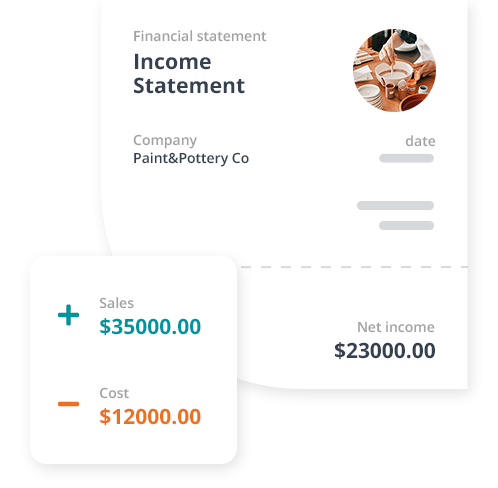SMALL BUSINESS RESOURCES
What is depreciation?
5 min read
What is depreciation? If you’ve just started out on your business journey, you’re probably looking to quickly acquire knowledge about your tax responsibilities in terms of depreciation and depreciable assets.
But first, let’s start with the basics before we get into the nitty-gritty.
What is depreciation?
Depreciation is the process of devaluing a material asset over a period of time.
When your small business purchases a work-related asset, which is used to run the operation of your business (such as a work vehicle, computer or piece of equipment), that material asset will gradually drop in value over time due to wear and tear.
This devaluing of an asset will be understood in terms of its depleting market value and this is the crux of small business depreciation.
Why is depreciation important?
So why is depreciation important? Depreciation is an important aspect of running a small business in terms of accounting and working with the Inland Revenue Department (IRD) to reduce business tax.
Depreciation allows your small business to spread the cost of purchasing an asset over a period of time and lets you write off the loss as a tax break.
Depreciation in accounting
Businesses in New Zealand claim the depreciation loss of their aging business assets as a tax deduction every tax year with the IRD.
You can always (and should) claim a tax deduction for depreciation loss on all of your business-related capital assets.
Importantly, you don’t necessarily have to have purchased the asset outright, you can also claim depreciation on capital assets you lease or buy under a hire purchase agreement. They must, of course, still be used to run your business operations.
For tax purposes in New Zealand, you must depreciate assets:
- That are owned, leased or are a part of a lease-to-buy arrangement by your business, and are used for business purposes.
- Which cost over $500 NZD.
- That has an expected ‘life’ of over a year.
Depreciating buildings
Before 2020 and the events surrounding the COVID—19 pandemic, you wouldn’t be able to depreciate buildings. That’s now changed.
From the tax year 2020-2021 onwards, you may now depreciate commercial and industrial buildings (not residential buildings) in your tax return.
This has been changed to:
- Help businesses establish better cashflow and boost business viability.
- Encourage businesses to invest in commercial and industrial real estate.
Depreciation as an expense
Depreciation is also an example of a business expense, not just the initial purchase of the asset in question.
Why? Any cost incurred in the running of your business is termed an expense. Since the asset you are depreciating is understood as an integral component of your regular business operations, depreciation is regarded as an operating expense.
In this way, depreciation is a non-cash component of your business expenses and is one of the rare expenses that contains no outgoing cashflow.
Tax depreciation
As above, ‘tax depreciation’ is the specific depreciation that’s allowed to be listed as an expense on your tax return to the IRD, according to a given reporting period.
As opposed to the depreciation of non-applicable assets, tax depreciation is deployed in order to reduce the amount of taxable income you report as a business in New Zealand.
Non-applicable depreciation or items that cannot be depreciated for tax purposes would include:
- land
- trading stock
- franchise fees
- intangible assets, like goodwill
If unsure, the advice of a business advisor or accountant is an excellent way of being sure of your depreciation rights and responsibilities, as businesses in New Zealand are required to include depreciation expenses in their financial statements.
Depreciation schedule
There are two primary depreciation schedules and rates applicable to New Zealand businesses:
- 1993 – 2005 rates apply to assets acquired on or after 1 April 1993 and before 1 April 2005, and buildings acquired on or after 1 April 1993 and before 19 May 2005
- 2006 and future years asset rates (use for assets other than buildings acquired on or after 1 April 2005 and buildings acquired on or after 19 May 2005).
There are a few ways you can calculate depreciation over time, depending on the asset and the intricacies are broad. These rates, as they apply to your specific business and assets, are best understood by downloading the official IRD depreciation rate guide here
Free financial management guide!
To have every chance of financial success, there’s a wealth of knowledge you’ll need to absorb – starting with our financial management guide.














